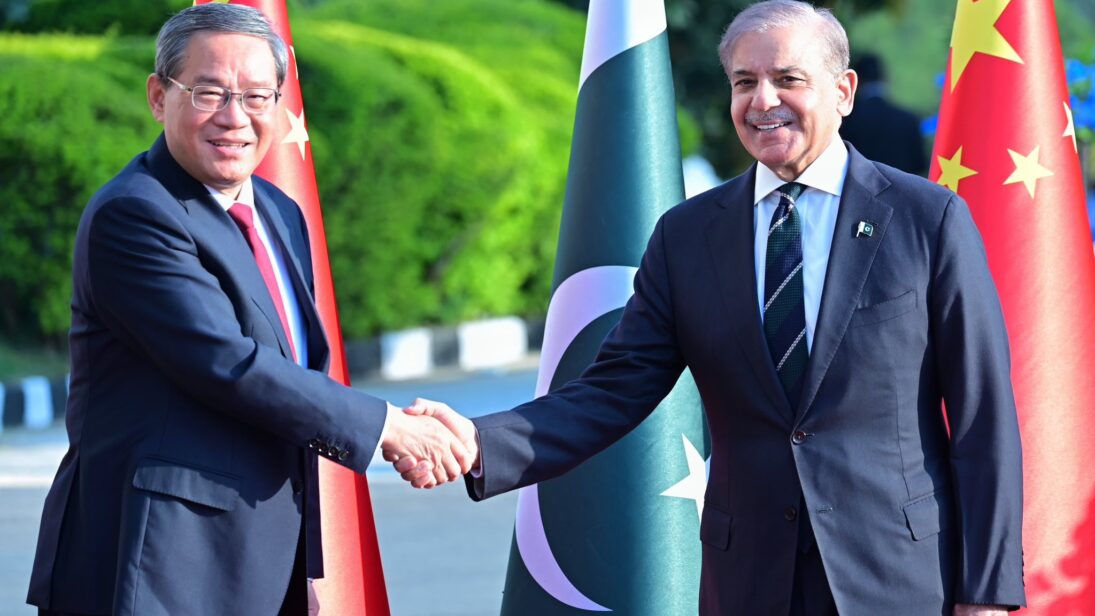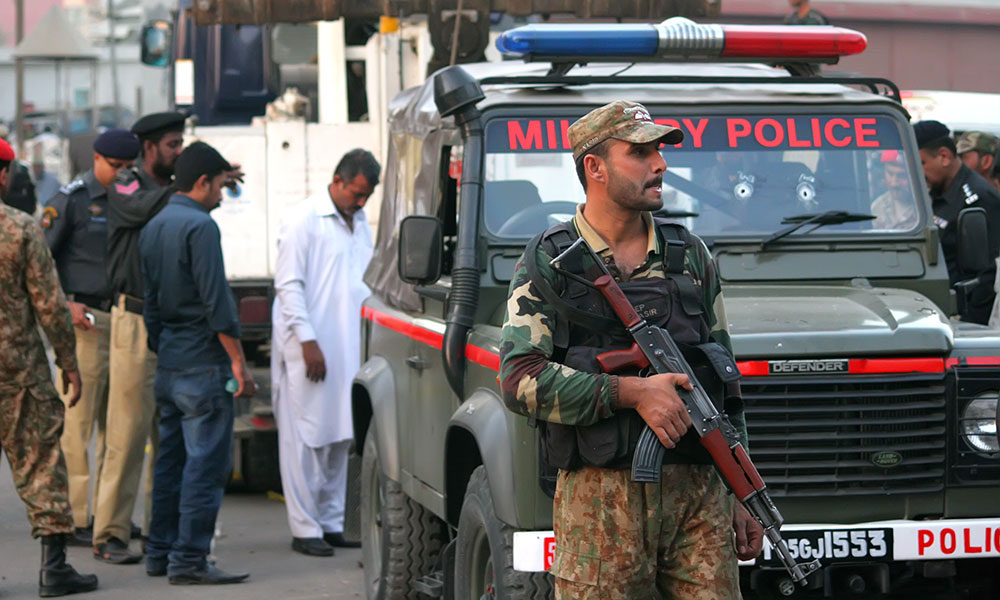
Farhan Hanif Siddiqi
Pakistan is experiencing multiple crises at once, both at its core and its periphery. The protracted concerns of political instability, economic recession, nation-building anxieties, and threats to security have combined into what many commentators have termed the state’s polycrisis. As 2024 draws to a close, many Pakistani citizens worry about the unstable status quo in the country and what the future holds. The problem is particularly animated by the common citizen’s severe loss of faith in the ruling elite’s ability to lead the country out of this crisis. Whether 2025 brings economic and political stability in Pakistan would depend on whether the elite have learnt from past mistakes and have the wherewithal to carry out much-needed reforms.
Pakistan’s Core Concerns: Economic and Political Instability
The economy has remained Pakistan’s biggest challenge. Opposed to introducing key structural reforms needed for the country’s economic revival, including land reforms, widening the tax base and reducing wasteful government spending, successive Pakistani governments have chosen the easy way out: turning to the International Monetary Fund (IMF). In September 2024, the IMF approved a USD$7 billion bailout package to stabilize Pakistan’s dwindling financial resources, marking the country’s 25th program. The country’s continued dependence on international financial institutions like the IMF and inability to meet even its targets sheds doubt on the elites’ initiative to prioritize the much-needed reforms required to overhaul the economy.
As 2024 draws to a close, many Pakistani citizens worry about the unstable status quo in the country and what the future holds. […] Whether 2025 brings economic and political stability in Pakistan would depend on whether the elite have learnt from past mistakes and have the wherewithal to carry out much-needed reforms.
As the country was in the throes of economic turmoil, Pakistan went to the polls in February to elect a new government, hoping to usher in much-needed stability. But the electoral outcome put the country in a state of further chaos. Elections empower people, ensure popular representation, and allow the electorate to channel their frustrations into effecting change by challenging incumbents and putting alternative political parties and leaders in their place. However, Pakistan’s elections failed on all three counts. In the months leading up to the polls, the common belief was that Imran Khan and his party, Pakistan Tehreek-e-Insaf (PTI), would not win given that Khan and many of his party colleagues were behind bars. However, the election results upended the establishment and aligned political parties’ narratives as the PTI secured the largest number of seats in the parliament. While the ruling coalition and establishment reject claims of political interference, on-the-ground reportage, discrepancies in results, admittance of rigging by some officials, and experienced analysis suggests otherwise. PTI’s astounding electoral victory is indicative of the growing societal discontent against the establishment’s continued meddling in Pakistani politics and calls into serious question the attempts by the establishment to forge favorable outcomes by denying the electorate a voice.
The 2024 elections reinforced in the minds of Pakistan’s young electorate that the country’s politics continues to function on deals made at the top between non-representative, yet formally elected, political parties and their unelected counterparts in the establishment. These deals reflect how politicians today have disavowed consensus-seeking as a route to power, such as was witnessed in 2006 with the Charter of Democracy or the 18th Constitutional Amendment in 2010. With political consensus confined to rhetoric, the government quashed any semblance of institutional checks and balances by passing the 26th Constitutional Amendment, usurping the powers of the independent judiciary. Periodic protests, on everything from rising electricity prices to election rigging, highlight the disconnect between the Pakistani government and the public. However, the 2024 election campaign and outcome also present a silver lining—they have served to embed in an increasingly young and politically aware citizenry a distaste for extra-parliamentary influence in politics at the same time as their identification with select political parties and leaders has solidified. This is a net positive for Pakistan’s transitioning democracy. This populace will continue to hold the powerful to account, support democratic institutions and process, push for diverse political representation, and fight for free and open participation in politics.
Pakistan’s Anxieties at the Periphery and Relations with Neighbors
In 2024, Pakistan’s floundering attempts at nation-building and integrating its deprived ethnic minorities at the periphery extended beyond a domestic concern to impact its relations with neighboring countries. At the beginning of the year, Iran fired missiles into Pakistan’s Balochistan province targeting Jaish al-Adl, which the Iranian foreign minister described as an “Iranian terrorist group” in Pakistan. Despite Iranian assurances that only Iranian nationals were targeted, Pakistan expressed outrage and responded with Operation Marg Bar Sarmachar targeting Baloch nationalists in Iran, with the Pakistan Foreign Office citing “serious concerns about the safe havens and sanctuaries enjoyed by Pakistani origin terrorists.”
Baloch ethnic separatists continued to be a prime concern for Pakistan, not just for its internal security but also its strategic relationship with China. The insurgents have evolved into guerilla units traversing national highways and cities at will, engaging in sophisticated security operations against the Pakistani security apparatus, and targeting non-Baloch settlers, including Chinese citizens. In October, a suicide attack claimed by the Baloch Liberation Army killed two Chinese citizens at the Karachi airport, and a separate terrorist attack in April resulted in the deaths of five Chinese citizens in Khyber Pakhtunkhwa.

That domestic troubles are endangering and negatively impacting ties with Pakistan’s closest ally became clear during an exchange between the Pakistani foreign minister and the Chinese ambassador to Pakistan. In a rather callous tone, the Pakistani foreign minister quoted Chinese officials as suggesting that the deaths of Chinese citizens in Pakistan mattered less to China-Pakistan ties than the relationship itself. But the Chinese ambassador retorted that the deaths were “unacceptable” and that “security is the biggest concern” for China and a constraint to the China-Pakistan Economic Corridor (CPEC) in Pakistan. The Chinese official’s reaction reflects that China-Pakistan relations are at a sensitive point and tending to nation-building imperatives by accommodating the Baloch should be a consideration for Islamabad if CPEC is to appropriate success.
On the Afghan border, the state remains engaged in a violent security campaign with nonstate actors, which indicates that the counterinsurgency successes of the previous years have radically reversed. Pakistan’s political and security expectations from the Taliban regime, which former Prime Minister Imran Khan hailed as breaking the “shackles of slavery,” and calling on the international community to re-engage with the Taliban have not come to fruition. On the contrary, there has been a disconcerting rise in TTP attacks and terrorist violence in Pakistan since the Taliban regime’s return in Afghanistan. In March, Pakistan accused Afghanistan of providing safe havens to terrorists and launched cross-border attacks targeting the TTP. This highlights the protracted discord between Pakistan and Afghanistan, irrespective of who is governing the latter. In addition to the terrorist attacks, sectarian violence also saw an upsurge in the Kurram district, forcing the government to shut down the main highway connecting the district to Peshawar, which has led to an acute humanitarian crisis.
Pakistan’s challenge in the short to medium term is to reverse its chronic political and economic instability. There are a few positives, with the reduction in inflation and record high trading in the stock market. However, these have not particularly impacted the lives of ordinary citizens who continue to reel under steep prices for utilities and everyday items.
Surprisingly, the only positive trajectory in the neighborhood, and a minor one at that, was briefly evident in India-Pakistan relations when the Shanghai Cooperation Organization (SCO) heads of government meeting provided a relative thaw in bilateral relations as Indian foreign minister S. Jaishankar exchanged pleasantries with Pakistan’s prime minister, Shehbaz Sharif, and foreign minister, Ishaq Dar. In fact, the Pakistani foreign minister had also previously expressed the government’s seriousness in reviving trade with India but the Foreign Office later dismissed that possibility. Overall, prospects for transformative India-Pakistan relations remain dim given the lack of incentive for India to engage and Pakistan’s internal domestic troubles.
What’s in Store for 2025 and Beyond
Pakistan’s political, economic, nation-building, and security crises seem to have engendered anxiety, frustration, and hopelessness amongst the citizenry, with the country witnessing an emigration surge over the last few years—the total number of Pakistanis leaving the country since 2008 hit the 10 million mark this year. Thus, it would take serious and significant steps for the ruling elite to convince Pakistan that the house is not on fire and can be put back in order.
Pakistan’s challenge in the short to medium term is to reverse its chronic political and economic instability. There are a few positives, with the reduction in inflation and record high trading in the stock market. However, these have not particularly impacted the lives of ordinary citizens who continue to reel under steep prices for utilities and everyday items. Pakistan’s best bet for stability requires the elite to unlearn past mistakes by carrying out structural economic reforms. Unfortunately, the government continues to miss tax collection targets, attributes ethnic discontent to external forces, and fails to reflect on its own policy choices that aggravate ethnic conflict. Finally, as witnessed during the 2024 elections, Pakistan’s political system favors self-styled elitist engineering versus citizens’ voices. At its core as well as periphery, the stabilizing imperative of the Pakistani state will only be guaranteed by connecting with the people through policies that satisfy their political, economic, and social rights. This is likely to be the key issue for Pakistan not only in 2025 but also in the next round of elections in 2029.
source : southasianvoices
